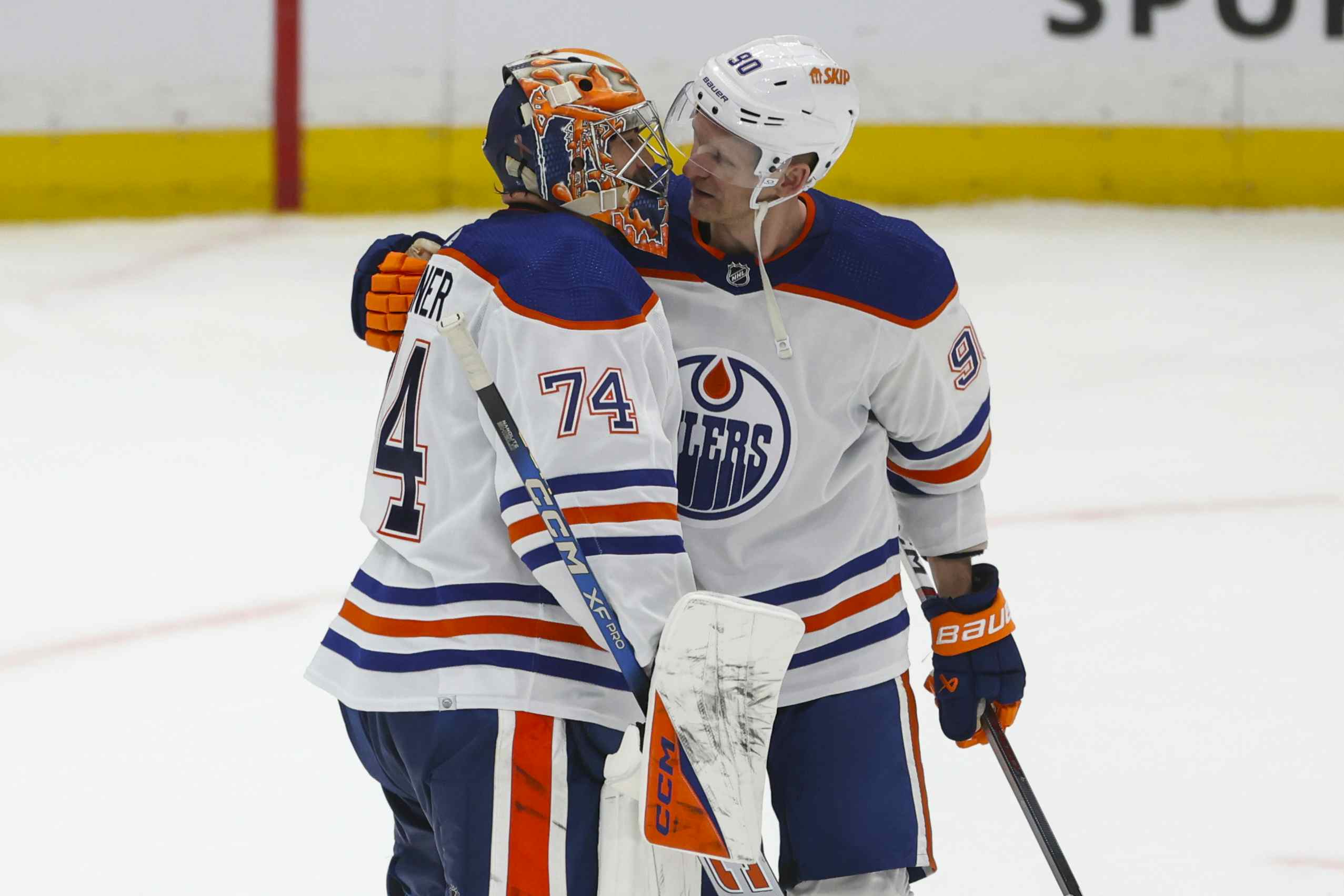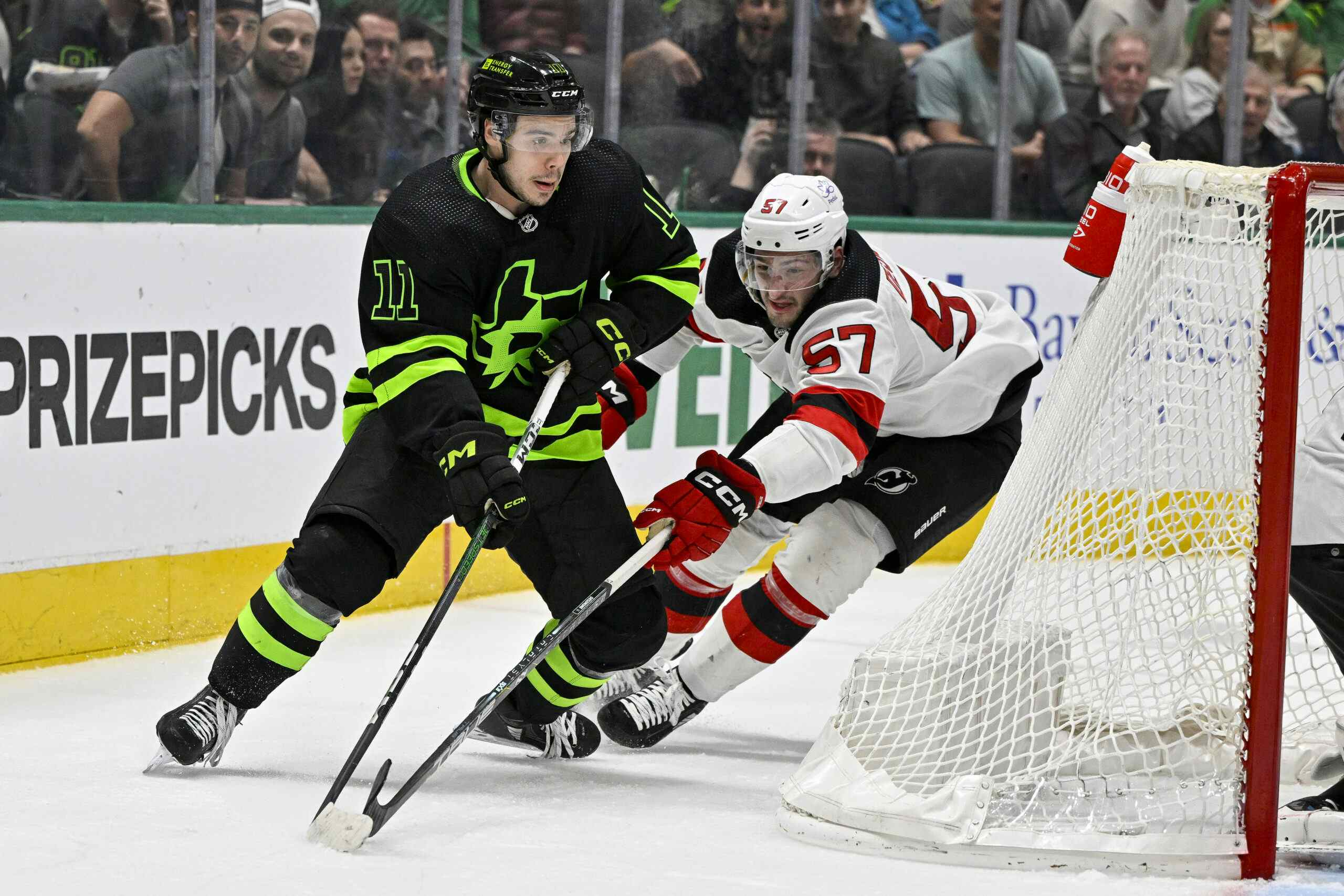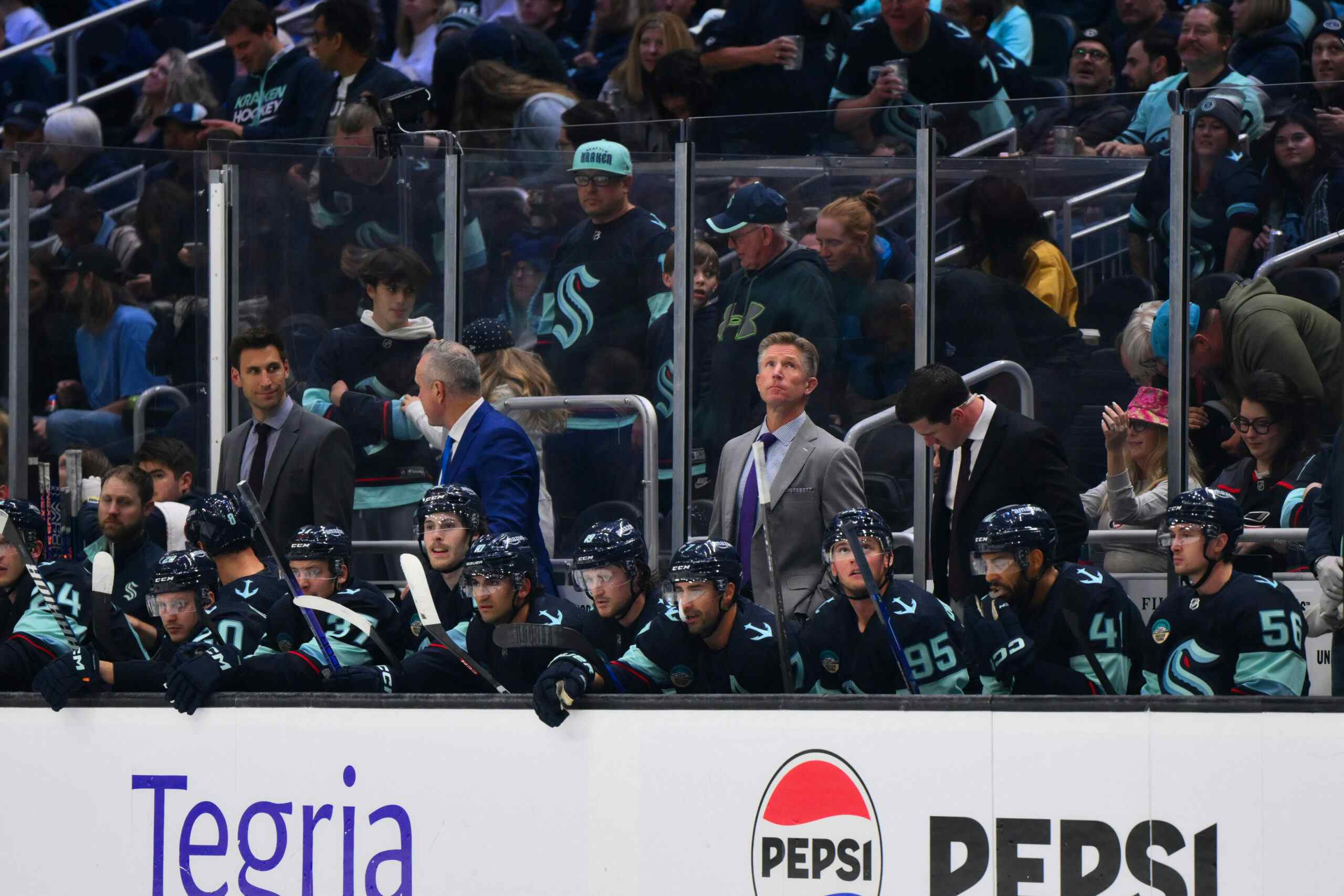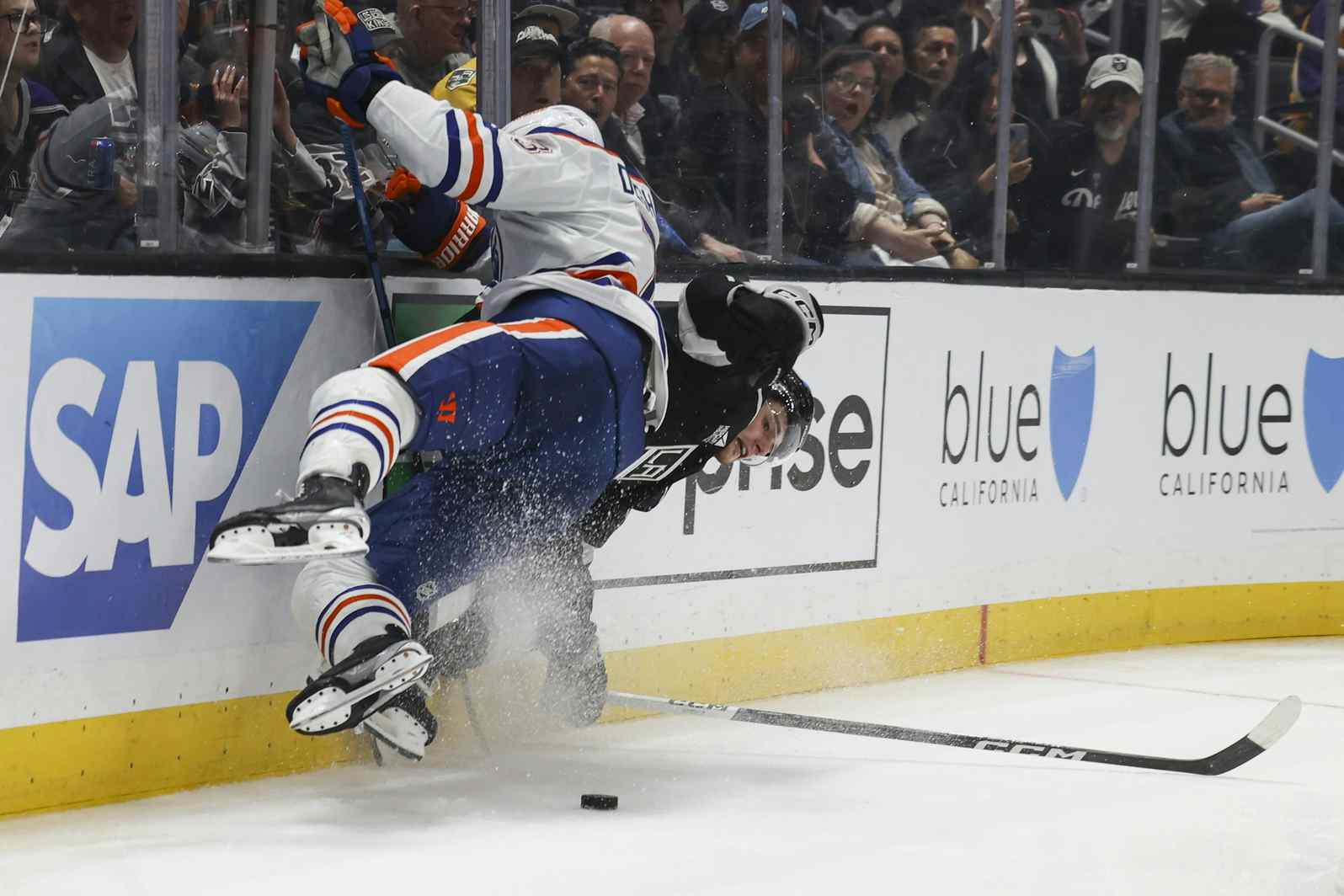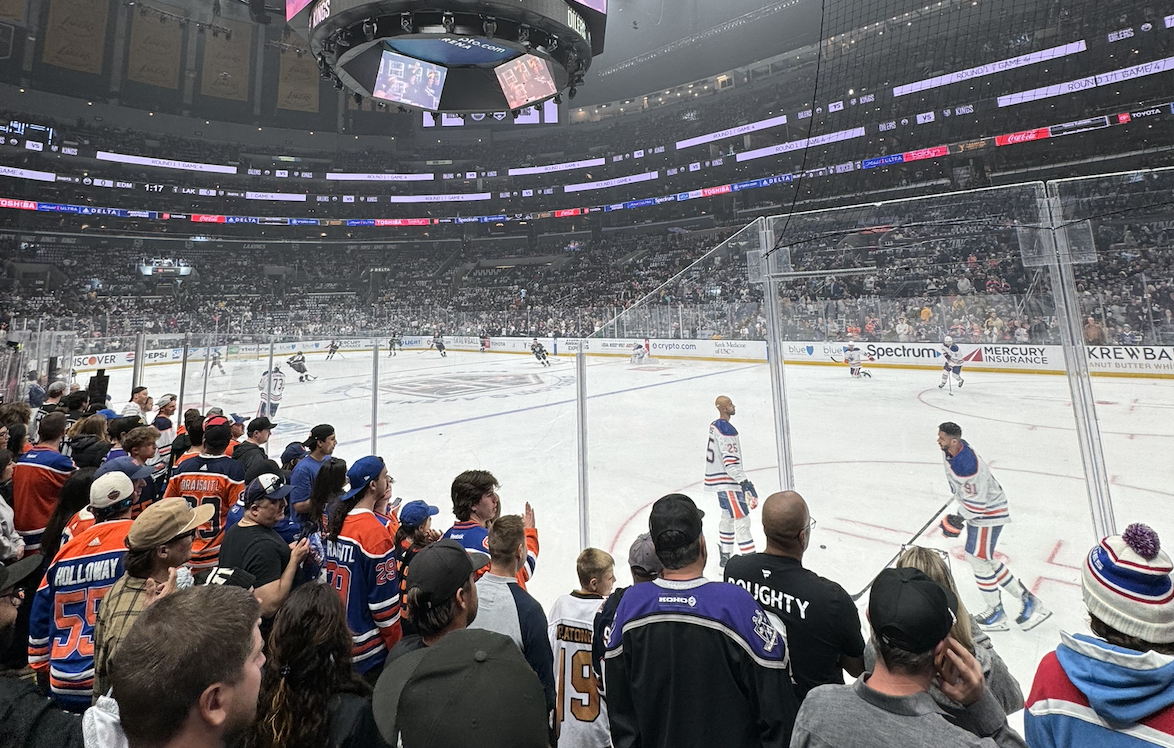10 Points: Mandel, Jones, Burke’s hilarity and Ovechkin
1. David Ling. There’s been lots of actual news the last few days, but as I wrote this I found my mind was on David Ling, currently a member of the Nottingham Panthers of the U.K.’s Elite Ice Hockey League. Why?
Ling played 85 games for Columbus between 2002 and 2004. He picked up eight points. But during the 2004-05 NHL lockout, the then 29-year old recorded 88 points in 80 contests (along with 152 PIM) for the St. John’s Maple Leafs. He narrowly beat out Kyle Wellwood for the team scoring title, and outpaced Matt Stajan by a mile, but he also surpassed a long list of other players. Eric Staal would score 100 points in the NHL in 2005-06; he finished 11 back of Ling that year. Thomas Vanek, Zach Parise and a long, long list of other notables also finished behind Ling. Ultimately, Ling finished third in AHL scoring, behind Jason Spezza and Mike Cammalleri.
The point is just that the AHL is a very good league, and while Ling might laughingly be dismissed as expansion era filler and a career minor-leaguer, he bested a lot of guys with brighter futures that year. I don’t know who the 2012-13 equivalent of David Ling is, but the Oklahoma City Barons have a few guys – players like Josh Green and Dane Byers – who might just give some of the younger hotshots a run for their money this season.
2. Stephen Mandel’s statement. Edmonton’s mayor put out a statement yesterday ,seemingly in response to last week’s meetings and yesterday’s emergence of Daryl Katz in local media. There’s a lot of room for disagreement on the arena deal, but at least one paragraph of the release should have broad appeal.
I would openly ask the Katz Group to release their full position to the public – based on the itemized list which was prepared with both the negotiating teams, so that all items and their economic rationale can be fully understood by the people of Edmonton.
In his interview with Edmonton Journal reporters David Staples and John MacKinnon, Katz repeatedly stressed that he would not go into details because he wasn’t going to negotiate through the public. With the mayor’s request, it would seem that the only thing now standing between in the way of the Katz group explaining itself publicly is the Katz group.
3. Ryan Jones started 2011-12 on the fourth line. The NHL isn’t really a true meritocracy. Things like contract status, age, and personality effect where guys slot into the lineup. With that said, it’s worth remembering that Ryan Jones opened last season on the fourth line – behind both Linus Omark and Magnus Paajarvi. He passed them as the season went on.
I’m not the world’s biggest Jones aficionado, but he did find a way to make the best of a bad situation, by doing what the coaching staff demanded. He didn’t have a perfect record in that department – Ralph Krueger scratching him last year stands out – but he did enough to get a stint with Nugent-Hopkins and Eberle, something that eluded Omark and Paajarvi.
4. Brian Burke is hilarious. I don’t even need to add any other comment. I’m just going to quote two pieces. From CBC.ca on March 3, 2012:
Burke confirmed that Francois Allaire, who also worked with Burke, Carlyle and Farrish in Anaheim, would remain in his position as goaltending coach in Toronto. "I think we have the best goalie coach on the planet," he said.
From mapleleafs.com, September 18, 2012:
“I regret that I have to deal with this matter publicly but I feel the need to respond. Was there interference from the staff as he said there was? Yes. But it was done reluctantly and it was done to change elements of our goaltending that was sub-par.” Burke, who hired Allaire away from his former team in Anaheim three years ago, said Allaire wasn’t going to be asked back after the club finished 29th in goals against with a bloated 3.16 average.
5. A rebel league? People like Cam Charron and Derek Zona have suggested a rebel league, similar to the WHA, as a good way of curbing the NHL’s tendency to have labour stoppages. I’d love to see it – if for no other reason than I really want to watch high-level hockey – but I can’t imagine one being viable in the long-term and it’s hard to imagine men with serious money being willing to fund something destined to die in the not too distant future.
6. “BIG BANG Night in Canada.” A press release from CTV landed in my inbox yesterday, announcing the creation of a new two-hour block of television programming on Saturday nights to help compensate for the absence of hockey. The network will feature four episodes of The Big Bang Theory in the same timeslot that Hockey Night in Canada normally runs. Senior V.P. of Programming Mike Cosentino:
If anything can fill the void felt today by every hockey fan in Canada, it’s humour from Canada’s most-watched series. From a scheduling perspective, this weekly stunt is an unmissable opportunity to bring even more viewers and advertisers to CTV on Saturday nights in primetime. Like hockey, THE BIG BANG THEORY has mass appeal with viewers whose statistics are similar when it comes to age, demographics, and loyalty, so there is natural synergy in this scheduling move.
Uh-huh. I included this rather blatant advertising because I do love the show (this is *probably* my favourite clip, though it’s hard to choose) but I know the only thing that gets me in front of a television on Saturday night is hockey. In other words: if CBC ends up airing AHL or CHL games, I’ll still be watching those. If they don’t, the odds are very good I won’t be watching TV on Saturday nights.
7. The Community Revitalization Levy isn’t made of magic. Daryl Katz’s interview with Staples and MacKinnon saw the CRL take on a starring role, with Katz implying several times that the projected tax revenue from it represented a pure windfall to the City of Edmonton. The CRL is an example of what’s known as “tax-increment financing” in the United States where tax revenues from big projects pay the cost of those projects.
Unfortunately, it’s not that simple, for a variety of reasons. An article from the Federal Reserve Bank of St. Louis does a good job of explaining some of the pitfalls in arguments for spending public money on arenas. A big one is what’s known as substitution; to quote the article:
Economic impact studies also tend to focus on the increased tax revenues cities expect to receive in return for their investments. The studies, however, often gloss over, or outright ignore, that these facilities usually do not bring new revenues into a city or metropolitan area. Instead, the revenues raised are usually just substitutes for those that would have been raised by other activities.
In the case of Edmonton, the 2010 Zimbalist report points out the difficulties in greater and more local detail. Basically, there’s certainly value to using a CRL, but the old adage that “there is no such thing as a free lunch” applies.
8. Scotty Bowman on former Canadiens’ general manager Sam Pollock. Anyone who knows anything about NHL hockey knows that Sam Pollock was a vicious general manager who bent every rule (or, as Lowetide points out, rewrote them when necessary) and ended up with nine Stanley Cups in 14 seasons as Canadiens general manager (his name would end up on the Cup 12 times in all). Scotty Bowman, a part of those successful Montreal organizations, tells us a bit about Pollock’s management style in Behind the Moves:
Sam was very prepared, ultra-prepared. He was a hard worker, all hockey. Traveled a lot. He had good insight into his present time, but also into the future. The Canadiens’ slogan was ‘Kids go marching on,’ which meant that he liked players coming up, adding to the team. Frank Selke was like that too, and always had lots of players in the pipeline…. Sam was never a one man show. He was very prepared and always researched everything. He was very analytical. Before he made a trade, everybody had to be onside. I mean, he was a very strong man, but he would make sure that the people who were working for him were all in agreement. He didn’t fly by the seat of his pants.
There’s a lot to like there, but the importance of always having a crop of young talent pushing for work is hard to understate.
9. A slight change. Earlier this week, I took over from Kent Wilson as the managing editor here at the Nations. Kent’s been increasingly involved on the business side of things, so I’ll step in and handle more stuff like NationRadio and editing/formatting content for the website. In unrelated news, expect more glitches in everybody’s work. Aside from that and the fact that you’ll all now think fondly back to the days when NationRadio was posted on Sunday night, this should not be a significant change.
10. Ovechkin’s comments. I couldn’t resist including Alex Ovechkin’s comments on possibly staying in Russia post-lockout:
As to the future, it will depend on what kind of conditions there will be in the NHL with the new CBA. If our contracts get slashed, I will have to think whether to return there or not. I won’t rule out staying in the KHL, even past this season.
Two things. The first is that any NHLPA member with any sense is going to play up the possibility of playing somewhere other than the NHL; it’s a good bargaining tactic, and one I’d certainly make use of in Ovechkin’s shoes. Second: that doesn’t mean there isn’t truth to it. Depending on the exact conditions, there’s a real possibility that the NHL’s European content drops in coming years as KHL money becomes more competitive (and also allowing for the favourable tax situation in Russia). This is a threat with merit precisely because the KHL can be a real alternative in some situations.
Recently by Jonathan Willis
- IIHF responds to reports of delay in the transfer of Nail Yakupov to the KHL
- Anton Lander and the value of a good first impression
- The Capitals have signed John Carlson to a bargain contract
- The market for defencemen
- Ten Points: Yakupov, RNH, and the Leafs as the worst team in sport
- Should the kids play on the penalty kill?
- Ten Points: Horcoff, Petrell, Landeskog and around the league
Recent articles from Jonathan Willis

